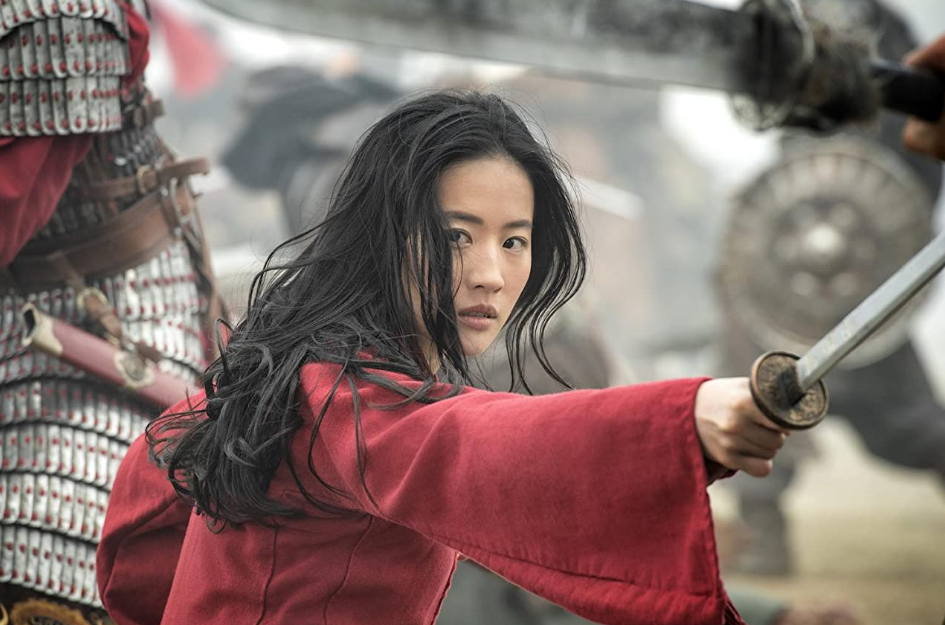Boycotts, politics and culture have been buzzwords surrounding the live-action remake of “Mulan” for over a year. Released on Sept. 4, “Mulan” has received a lot of attention, and the majority of it has not been positive. The issues surrounding the film have sparked questions for students and alumni alike about justice, respect and how to handle controversy.
POLITICAL PROBLEMS
Since the live-action was announced, fans of the original were eagerly waiting to see how Disney would approach the film. However, what began as disappointment without the beloved character Mushu quickly spiraled into a plethora of valid reasons for concern. One detail that did not go unnoticed by audiences was the credit at the end of the film—thanking the Turpan Municipal Bureau of Public Security, a Chinese government group that has been involved in detaining Uighurs and other ethnic minorities.
In addition, the film’s lead actress, Liu Yifei, expressed her support for Hong Kong police on Chinese social media platform Weibo in August 2019. This post launched the original uneasiness surrounding the film, as #BoycottMulan began trending on Twitter.
Sophomore cinema and media arts major Ellis Holcombe, who lived in Hong Kong until coming to Biola, expresses his understanding of the frustration surrounding this issue in particular.
“Seeing her, who has so much freedom and is able to come to the U.S. and make a life for herself, just shows me that this person is probably not empathizing with the needs of Hong Kong people really well, and the people who feel like their freedoms are being taken away,” Holcombe said.
Biola alumnus and Hong Kong resident Joseph Wan has attended some of the peaceful protests and marches in the city. Although he prefers to look at the controversy from all perspectives, he also understands the urge for the boycott.
“It’s a film supporting equality, justice and all of these positive values, and meanwhile, a lot of us feel like the Hong Kong police did not really portray those values very well at all,” Wan said. “So, when the main actress of the movie supports a group that doesn’t really align with what the movie is saying, then there is a lot of conversation around that.”
DISNEY DRAG
To add to the political controversies surrounding the film, Disney live-action remakes are notable for not living up to expectations and receiving less than stellar ratings. That fact alone makes the movie undesirable for some to begin with, not to mention the $30 expense to view “Mulan” on Disney+. Senior cinema and media arts major Josiah Solis talks about the charisma that makes animated films so appealing.
“The problem with these live action remakes is that they shy away from what made the originals such charms,” Solis said. “And the thing is that the originals were such charms for a reason. Animation in itself is charmful.”
The fact that “Mulan” is a Disney film inevitably draws a lot of attention to it as well. Anytime a film is released from a major studio, it automatically has a significant number of eyes on it.
“As soon as something gets a big platform, there’s going to be a certain amount of criticism towards it,” Holcombe said. “It really is about the platform, and if it’s being shown to a lot of people, then there’s going to be a lot more scrutiny like this.”
Students and alumni both expressed that they would not feel bad boycotting the film by not watching it, as Disney has enough money to survive without it.
LOOKING FOR ANSWERS
Whenever controversies such as this emerge, the question of how to respond properly is raised. Holcombe approaches this from the perspective of a filmmaker, pointing out that whatever position a person plays on set, whether producer or casting director, that person has the power to influence an audience.
“There’s an amount of thought that needs to go into it, especially when you have a big audience, that is going to reflect who you are as a person,” Holcombe said.
Wan urges those who are interested in the issue to remember that not every controversy is black and white, and to respect that everyone is created with a different cultural identity for a purpose.
Solis ties in Paul’s instruction in 1 Corinthians to do everything in love. He compares the Christian response to these situations to God’s love for his creation, explaining that God loves humanity, but he does not tolerate every action, and that is where sin comes in.
“That’s a very buzz-driven word as well, love, because what does love look like?” Solis said. “Is love all-tolerant? Or is love accepting, but not tolerant to different things?”












